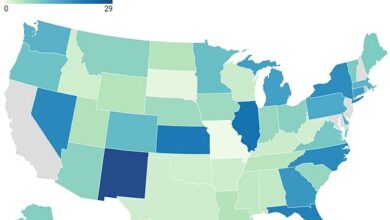Coroner blames allergy death of 13-year-old girl on ‘failure’ of Costa Coffee staff who served her deadly hot chocolate, inquest concludes





A 13-year-old with severe dairy allergy dies after eating a Coast Coffee, hot chocolate, after a ‘failure to follow the processes’, a judicial investigation has revealed.
Hannah Jacobs, from Barking in East London, suffered a suspected anaphylactic reaction to the drink in February last year after taking just one sip.
She had a severe allergy to dairy, eggs, fish and wheat, which had been diagnosed at a young age and her family had managed well for the rest of her life.
According to law firm Leigh Day, Hannah’s mother told the barista that her daughter was allergic.
But assistant coroner Dr Shirley Radcliffe today concluded there was also a “poor communication” between the coffee shop staff and Hannah’s mother.

Hannah Jacobs, from Barking in East London, suffered a suspected anaphylactic reaction to the drink after taking a sip in February last year

Hannah, from Barking in East London, died on February 8 last year after a suspected anaphylactic reaction to a hot chocolate sold by Costa Coffee (stock image)
Dr Radcliffe said: ‘The main cause of this death is a failure to follow procedures to discuss allergies, combined with poor communication between the mother and the barista.’
The coroner also noted that on the day of her death, “neither Hannah nor her mother had the prescribed EpiPen with them.”
An autopsy revealed that Hannah had died of a hypersensitivity anaphylactic reaction, caused by an ingredient in her hot chocolate that triggered an allergic reaction.
On February 8, 2023, her mother ordered a hot chocolate for Hannah and herself from their local Costa before heading to a dentist appointment.
But when Hannah took a sip of the drink in the dentist’s waiting room, she immediately told her mother that the drink was not made with soy milk.
The pair rushed to a nearby pharmacy to seek help, where staff gave Hannah an EpipPen, an emergency treatment designed to combat a life-threatening allergic reaction.
But despite this and the fact that an ambulance arrived shortly afterwards to take her to hospital, resuscitation attempts were unsuccessful.
Hannah was pronounced dead at 1pm that day.
Experts estimate that 10 Britons die each year from an allergic reaction to food, and 5,000 people are hospitalised due to serious reactions.
The latest government figures show that around 2.4 million adults in the UK are living with a food allergy, with hospital admissions for serious reactions having more than tripled in the past 20 years.
Allergies can cause a variety of symptoms, but the most serious is a dangerous inflammation of the airways, also called anaphylaxis.
This can make it difficult or even impossible to breathe and the body can go into cardiac arrest due to a lack of oxygen.
Children with allergies are at greater risk of severe reactions because they are smaller and small amounts of allergens can cause more severe reactions.
Allergies are often discovered in childhood, meaning parents may not have an emergency injection on hand if an allergic reaction occurs.
Relatives of people who have lost a child to allergic reactions have repeatedly called for the appointment of an Allergy Inspector by the government to improve NHS services and awareness of allergies, and prevent avoidable health problems and deaths.
Recently, more than 50 campaigners and experts, including the former Towie star, Megan McKenna and Love Island’s Jack Fowler said the country is not doing enough to support the millions of Britons living with allergies.
In the open letter, the coalition wrote that the lack of a national leader on allergies has been raised “time and again by coroners at inquests” of people who have died from serious reactions, including to products they thought were safe.
Yet, out of the 45 such leaders, Although NHS England has a team dedicated to covering issues ranging from obesity to autism, there is none dedicated to supporting people with allergies.
Since the death of Natasha Ednan-Laperouse, the subject of allergies and the dangers they pose to children has also been in the spotlight.
Her father was forced to watch helplessly as the 15-year-old dies after allergic reaction to Pret sandwich during a flight from Nice.
Nadim and Tanya Ednan-Laperouse OBE, co-founders of The Natasha Allergy Research Foundation, responded to the research findings: ‘It has been heartbreaking to hear in recent days about the series of mistakes and missed opportunities that led to the death of schoolgirl Hannah Jacobs from a food allergy.

Hannah was pronounced dead at Newham General Hospital in east London (file photo)

Natasha Ednan-Laperouse, 15, was on a dream trip to Nice with her best friend and her father when she suffered a severe reaction to sesame seeds baked into an artichoke, olive and tapenade baguette she bought at Heathrow
‘This is yet another food allergy death that should never have happened. It was completely preventable.
‘We need urgent government action to raise awareness in schools, businesses and the wider community that food allergies can be serious, unpredictable health conditions and not a lifestyle choice. We also need to ensure that people with allergies have access to integrated and timely allergy care from the NHS.
‘Today, alongside Hannah’s heartbroken mother Abi, and on behalf of other parents who have lost a child to food allergies, we are once again urging the government to appoint an Allergy Tsar: a national champion for the one in three people who live not just with food allergies, but with all types of allergic conditions, including asthma and eczema.
‘We wrote to ministers asking them to talk to us about the crucial issue of allergy deaths and the urgent need for an Allergy Tsar, and were disappointed to hear that they were too busy.
‘Today, in light of Hannah’s case and the urgent need to take action, we have written again to Ministers requesting an urgent meeting. We hope that they will recognise the urgency of this situation and come up with a more positive response.
‘How many more children have to die before we take food allergies seriously?’




